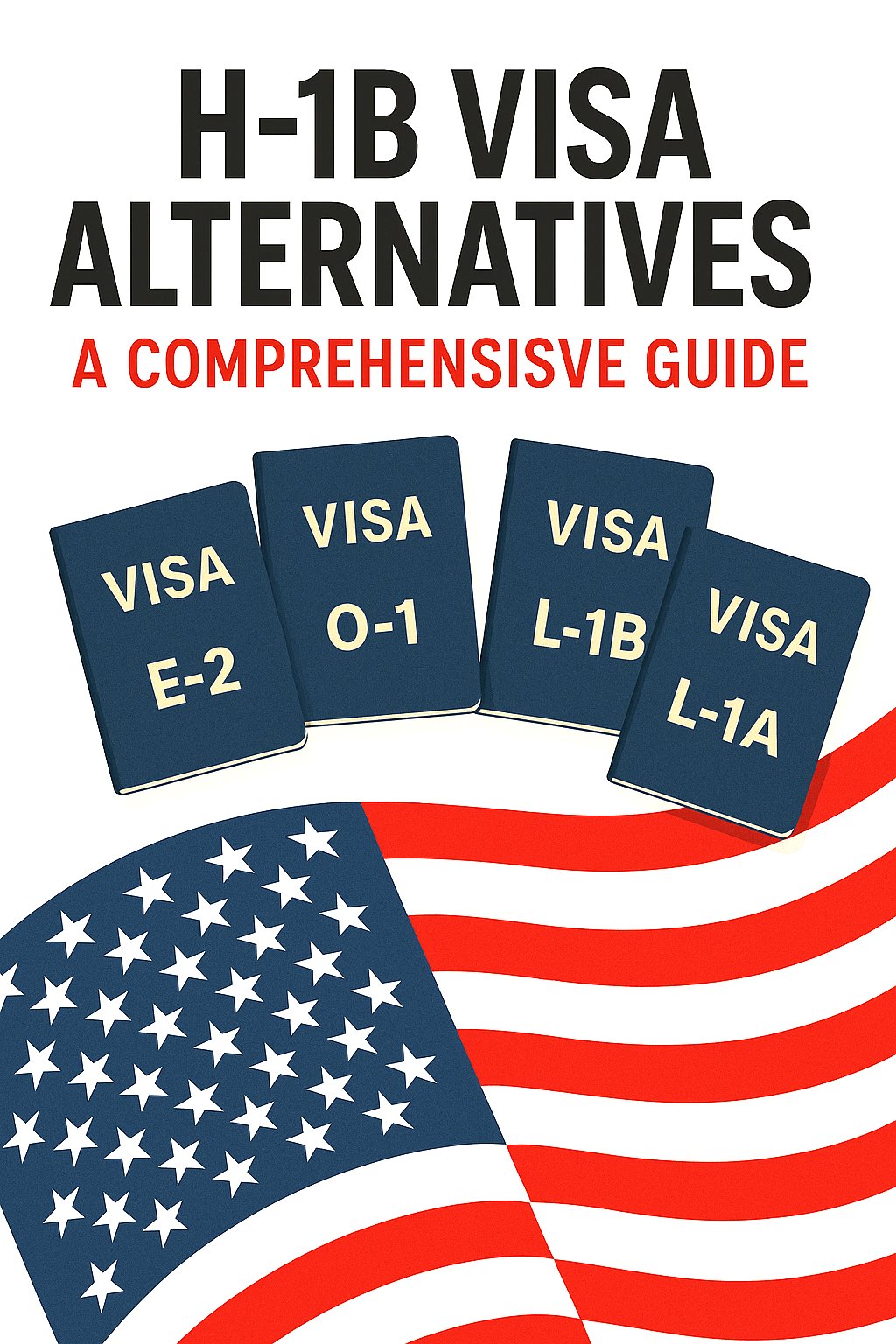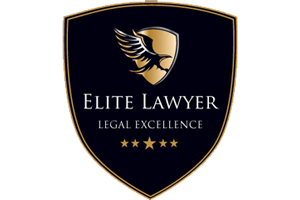- Free Consultation: (213) 251-5533 Tap Here to Call Us
Alternatives to the H-1B Visa: Exploring U.S. Work Visa Options

For decades, the H-1B visa has been the most recognized pathway for skilled foreign professionals seeking to work in the United States. However, with recent proclamations by former President Donald Trump aimed at restricting H-1B availability and rumors of filing fees climbing as high as $100,000, both employers and international workers are asking the same question: what are the best alternatives to the H-1B visa?
The good news is that the U.S. immigration system is far more diverse than the H-1B program alone. From visas for multinational executives and investors to categories for extraordinary ability professionals, entertainers, and even students on Optional Practical Training (OPT), there are numerous ways to secure U.S. work authorization. For many individuals, these options are not just alternatives, but better fits for their unique circumstances.
Below is a comprehensive guide to alternative U.S. work visas, organized alphabetically for clarity. Each section explains the visa’s purpose, the qualifications required, and the maximum duration of stay.
CW Visa: Transitional Workers for the Northern Mariana Islands
The CW visa is unique to the Commonwealth of the Northern Mariana Islands (CNMI). It allows employers there to hire foreign workers who would not qualify under other categories. Applicants must have a valid job offer from a CNMI employer, and the position must meet the rules set by USCIS. The visa is valid for one year and renewable but is limited geographically to the CNMI.
E-2 Visa: Treaty Investors and Employees
The E-2 visa is available to nationals of treaty countries who invest a substantial amount of capital in a U.S. business. The business must be real, active, and profitable. Within the E-2 framework, there are two main categories. The E-2 Executive visa applies to investors who will direct and develop the enterprise, while the E-2 Essential Skills visa covers employees who possess specialized knowledge crucial to the business. E-2 visas are typically issued for two years and can be renewed indefinitely as long as the enterprise remains operational.
E-3 Visa: Australian Professionals
The E-3 visa is designed specifically for Australian nationals in specialty occupations that require at least a bachelor’s degree. Applicants need a U.S. job offer, an appropriate degree, and a Labor Condition Application certified by the Department of Labor. The visa is valid for two years and can be renewed indefinitely. With a separate annual quota that rarely fills, the E-3 is a strong alternative to the H-1B for Australians.
EB-2 and EB-3 Green Cards: Permanent Employment-Based Options
Employment-based immigrant visas provide lawful permanent residence. The EB-2 applies to those with advanced degrees or exceptional ability, while the EB-3 covers professionals with bachelor’s degrees, skilled workers with two or more years of training or experience, and certain other workers. Most cases require labor certification to show no qualified U.S. workers are available. Once approved, applicants receive green cards, offering long-term security beyond temporary visa limits.
H-1B1 Visa: Chilean and Singaporean Professionals
The H-1B1 visa is available only to citizens of Chile and Singapore under free trade agreements. Like the H-1B, it requires a specialty occupation, a bachelor’s degree or higher, and an approved Labor Condition Application. Unlike the H-1B, it has its own quota and can be renewed annually without a strict maximum.
H-2B Visa: Temporary Non-Agricultural Workers
The H-2B visa allows U.S. employers to hire foreign nationals for temporary or seasonal non-agricultural jobs, such as hospitality, landscaping, and construction. Employers must obtain a temporary labor certification from the Department of Labor to prove that no qualified U.S. workers are available. The visa is valid for one year and may be extended for up to three.
H-3 Visa: Trainees and Special Education Visitors
The H-3 visa provides training opportunities in the United States not available in the applicant’s home country. Employers must show that the program is structured, beneficial, and not intended to fill regular positions. The visa is valid for up to two years, or 18 months for special education exchange visitors.
I Visa: Representatives of Foreign Media
The I visa covers journalists, film crews, and other foreign media professionals engaged in legitimate news-gathering activities. The visa is valid for as long as the individual continues in the role and can be extended.
J Visa: Exchange Visitors
The J visa supports cultural and educational exchange. Categories include research scholars, professors, students, au pairs, and medical trainees. Each applicant must be sponsored by a designated exchange program, which issues a Form DS-2019. Many J visa holders are subject to a two-year foreign residency requirement before switching to another visa, unless waived. Duration depends on the program and ranges from months to several years.
L-1A Visa: Executives and Managers
The L-1A visa allows multinational companies to transfer executives and managers to U.S. offices. Applicants must have worked abroad for at least one year in the past three years and must enter the U.S. in an executive or managerial role. The initial stay is three years, with extensions up to a maximum of seven.
L-1B Visa: Specialized Knowledge Employees
The L-1B visa applies to multinational employees with “specialized knowledge” of the company’s products, processes, or techniques. Applicants must have one year of foreign employment with the company within the past three years. The maximum stay is five years.
O-1 Visa: Individuals of Extraordinary Ability
The O-1 visa is for individuals who have reached the top of their field in sciences, education, business, arts, or athletics. Applicants must demonstrate sustained national or international recognition through awards, publications, contributions, or other significant evidence. The visa is initially valid for three years and extendable one year at a time without a set maximum.
OPT, STEM OPT, and Day One OPT
Optional Practical Training (OPT) provides F-1 international students with the opportunity to work in the U.S. in their field of study for up to 12 months after completing an academic program. OPT is intended to give graduates practical experience that complements their education. Students in STEM fields can apply for a 24-month extension known as STEM OPT, bringing their total possible work authorization to three years. Employers must be enrolled in E-Verify and meet additional compliance obligations. Some schools market “Day One OPT,” allowing students to begin practical training immediately. However, this option is riskier, as it can attract closer scrutiny by USCIS and may jeopardize future immigration benefits. Students considering Day One OPT should seek legal advice before proceeding.
P Visa: Athletes and Entertainers
The P visa covers athletes, entertainers, and artists. The P-1 applies to internationally recognized athletes or entertainment groups, the P-2 to exchange programs, and the P-3 to culturally unique programs. Applicants must provide evidence of reputation, contracts, or cultural significance. Athletes may stay for up to five years, while entertainment groups are usually approved for the length of a season or event, extendable as needed.
R Visa: Religious Workers
The R visa applies to ministers and religious workers employed by nonprofit religious organizations. Applicants must show at least two years of membership in their denomination and proof that they will perform religious duties in the U.S. The visa is valid for 30 months and can be extended for up to five years.
TN Visa: Canadian and Mexican Professionals
The TN visa allows Canadian and Mexican citizens in designated professions under the United States-Mexico-Canada Agreement (USMCA) to work in the United States. Applicants need a job offer in a listed occupation, proof of credentials, and citizenship. TN visas are issued for three years and can be renewed indefinitely, providing stability without the H-1B lottery.
Conclusion
While the H-1B program has become more uncertain and expensive, the United States continues to offer many alternatives. From investor visas like the E-2, to employment-based categories such as the TN, E-3, and H-1B1, to cultural exchange through the J visa and work authorization for students under OPT, the system provides a wide range of options. Employers and workers willing to explore these pathways may find not just substitutes, but solutions better tailored to their needs.
Legal Disclaimer: This article is for informational purposes only and does not constitute legal advice. Immigration law is complex and fact-specific. Call Thomas M. Lee for a free phone consultation: (213) 251-5533.








